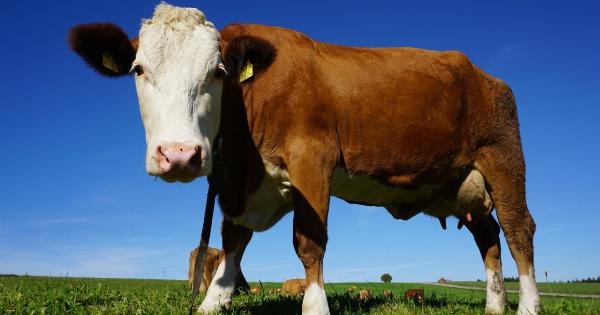Parkinson’s disease is a progressive neurological disorder that affects movement and coordination. It is most commonly associated with symptoms such as tremors, stiffness, and impaired balance.
While the exact cause of Parkinson’s disease remains unknown, researchers have been exploring various factors that may contribute to its development, including dietary habits.
Understanding Parkinson’s Disease
Parkinson’s disease occurs when the brain cells that produce dopamine, a neurotransmitter essential for smooth and coordinated movement, begin to deteriorate.
The loss of dopamine-producing cells leads to the characteristic symptoms of Parkinson’s disease.
Although Parkinson’s disease is primarily considered a neurological condition, researchers have also found evidence of involvement from other bodily systems, including the gut.
This has led to investigations into the potential role of diet and nutrition in the development and progression of the disease.
The Link Between Dairy Consumption and Parkinson’s Disease
Recent studies have examined the relationship between dairy consumption and Parkinson’s disease, specifically focusing on low-fat dairy products.
Some research suggests that consuming low-fat dairy products may be linked to a slightly increased risk of developing Parkinson’s disease.
A study published in the journal Neurology found that individuals who consumed at least three servings of low-fat dairy products per day had a 34% higher risk of developing Parkinson’s disease compared to those who consumed less than one serving per day. The same study did not find a similar association with full-fat dairy products.
These findings have raised questions about the potential mechanism by which low-fat dairy products may affect Parkinson’s disease risk. While more research is needed to fully understand this link, several hypotheses have been put forward.
Possible Explanations
1. Contaminants: Some researchers believe that contaminants present in low-fat dairy products, such as pesticides or environmental toxins, may contribute to an increased risk of Parkinson’s disease.
However, more studies are needed to explore this possibility.
2. Calcium and Vitamin D: Low-fat dairy products are often fortified with calcium and vitamin D. Both of these nutrients have been associated with a reduced risk of Parkinson’s disease.
It is possible that the benefits of these nutrients outweigh the potential risks associated with low-fat dairy consumption.
3. Protein Content: Another hypothesis suggests that the protein content of low-fat dairy products may play a role.
Certain proteins found in dairy products, such as casein, have been linked to inflammation and oxidative stress, both of which are factors implicated in Parkinson’s disease.
4. Gut Microbiota: Emerging research suggests that changes in the gut microbiota may influence the risk of developing Parkinson’s disease.
Low-fat dairy products have been shown to alter the composition of gut bacteria, which could potentially impact disease risk.
The Importance of Balance and Moderation
It’s essential to interpret the findings of these studies with caution.
While there may be a slight association between low-fat dairy consumption and Parkinson’s disease risk, it does not necessarily mean that low-fat dairy products directly cause the disease.
Moreover, dairy products, including low-fat options, are also a valuable source of essential nutrients like calcium, vitamin D, and protein. Restricting or eliminating them entirely from the diet may have negative consequences for overall health.
The key lies in balance and moderation. Instead of completely avoiding low-fat dairy products, individuals concerned about Parkinson’s disease may consider incorporating other dietary changes to reduce their risk.
This includes consuming a wide variety of fruits, vegetables, whole grains, lean proteins, and healthy fats.
Additionally, individuals can consult with a healthcare professional or registered dietitian to develop a personalized nutrition plan that optimizes overall health while also taking into account any specific concerns.
Conclusion
The relationship between low-fat dairy consumption and Parkinson’s disease is an area of ongoing research.
While some studies have shown a possible link, more research is necessary to establish a definitive connection and understand the underlying mechanisms.
Until further evidence emerges, it is recommended to maintain a balanced diet that incorporates a variety of nutrient-rich foods, including low-fat dairy products, while also considering individual health needs and preferences.






























